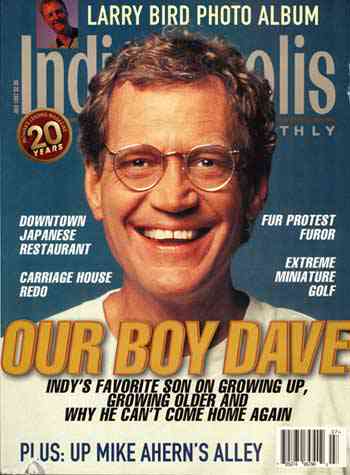As we have done the past several holiday seasons, we take some time to reflect and look back at the past year. JacoBLOG creates fresh content each weekday (and has done so for nearly 11 years). Thanks to the data, we can see precisely which posts resonated with you during the year that winding down.
One of our most-read posts not just of 2015 – but of all time – is from this past May when David Letterman stepped down from his Late Night desk. Howard Stern’s comments about Dave’s talent and what it takes to be a media star were nothing short of brilliant. In many ways, he summarized his own success. Howard’s recent re-signing with SiriusXM was accompanied by a love letter to the industry that gave him voice and the chance to be heard. He’s made the most of it.
If you know your radio history, you probably recall that among his many wise career moves, Howard Stern got out of broadcast radio before the advent of PPM. His exodus to Sirius in 2005 was about a year before meters became the currency of radio ratings.
But that can’t stop “The King of All Media” from weighing in on what it takes to keep audiences riveted – getting them through commercial stopsets (and Stern’s were notoriously long). In an article in the New York Times about David Letterman’s swan song, Stern talked about how the Late Night‘s perennial #2 ranking to Jay Leno became a gift, liberating the former Indiana radio host to be true to his craft and his talent.
Stern noted that part of Letterman’s DNA was his radio broadcasting roots, providing him with the fundamentals to become a runaway success on TV. Here’s Stern’s money quote:
“He was a broadcaster. When you’re on television and drag people through quarter-hours, which is really the job in a nutshell, how do you make someone sit through commercials? How do you make them feel so compelled to sit in front of a TV when they’re dead tired and have to get up to work the next day? A broadcaster knows how to do it. It’s not about the joke. It’s about being compelling, and it’s about being a leader so people want to follow you and want to hear your every word.”
The same could be said of Stern. As his empire expanded after leaving broadcast radio, the blocking and tackling, that mandatory need to be essential, and earning a position of trust in the collective mind of the audience are still the key components that can propel any show business career – whether it’s hosting a late night talk show, being a cast member on a reality TV show, or doing mornings in Bakersfield.
I have met morning talent who thought they understood Stern’s appeal – believing that because his show sounded like a casual conversation, it was obviously unprepared and loose. They couldn’t have been further from the truth.
In Letterman’s case, many of the skills that he perfected while on the radio translated wonderfully to TV, especially benchmarks. Letterman’s “Stupid Pet Tricks,” along with the iconic “Top 10 List,” kept audiences coming back night after night. He may have borrowed some of those tricks from his early radio days, but it’s noteworthy that so many radio hosts stole them right back for their shows.
I recently spent time with Jeff Smulyan whose parent company was Letterman’s boss at WNTS-AM in Indianapolis. He has fond memories about Dave’s early years as the midday guy. Back in 1997 in a cover story in Indianapolis Monthly, Jeff had this to say about Letterman’s early days on the radio:
“When he took the job, he said, ‘I’m gonna try to make it in Hollywood.’ The guy who replaced him was Rick Cummings, the first employee here at Emmis. David also bought shares in Emmis and was on the board for a while before it went public. We don’t see each other often anymore, but I always thought he was the most brilliant, funniest human being who ever lived. I just think he’s incredible.”
So it comes down to the basics – having that God-given talent, but honing those skills and gaining a fundamental understanding of human behavior, emotions, and connections – assets that both Letterman and Stern have mastered well beyond their early radio years.
As for Cummings, he did pretty well for himself, too.
Thanks to J LaLonde for the tip on this story.
- Like A Pair Of Old Jeans - April 2, 2025
- What’s Fair Is Fair - April 1, 2025
- What’s On Your Bucket List? - March 31, 2025






Leave a Reply